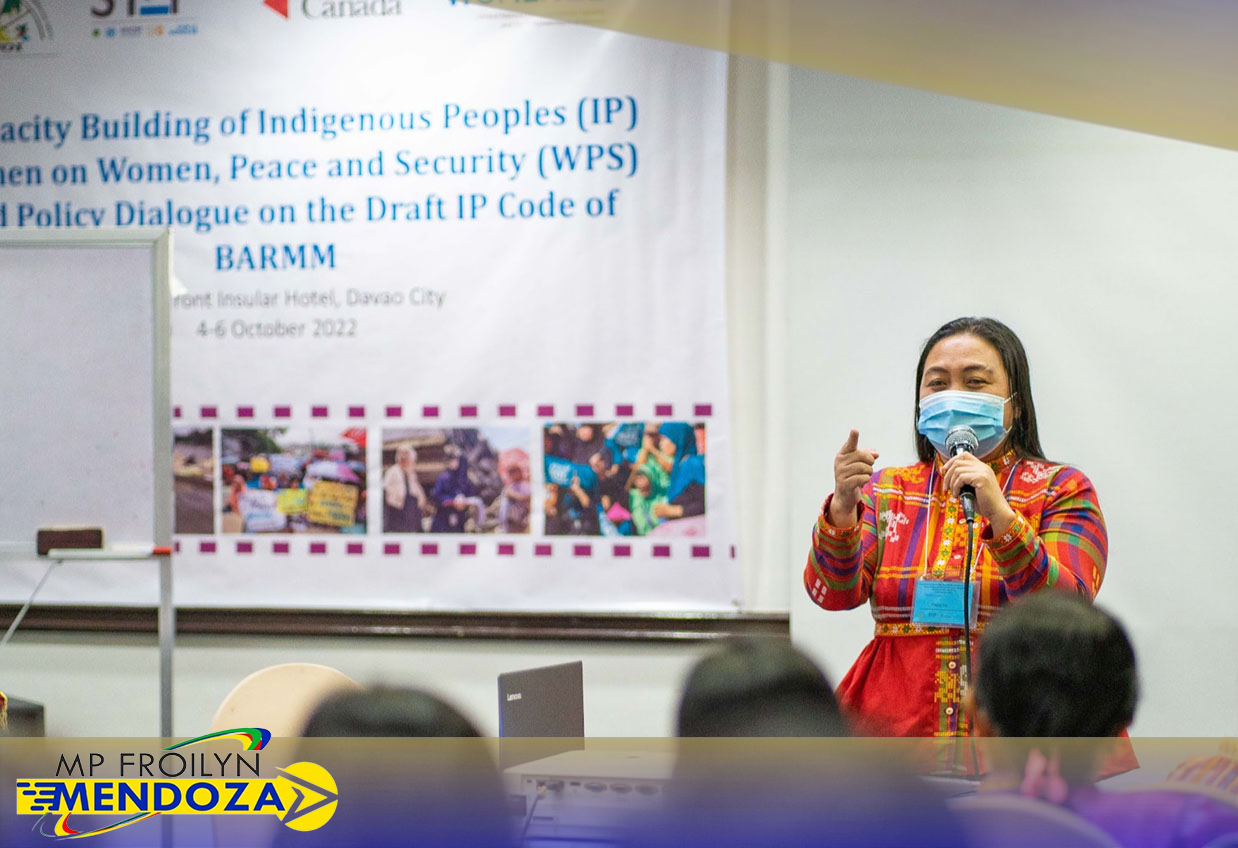HON. MP FROILYN T. MENDOZA
mpfroilynmendoza.bta@gmail.com
- Mendoza's journey and achievements are a significant reflection of her resilience, determination, and commitment to advocating for the rights and representation of indigenous peoples, particularly within the context of the Bangsamoro peace process in the Philippines. Her story offers a rich narrative that illustrates the intersection of indigenous rights, women's empowerment, and peacebuilding efforts in a region marked by a complex history of conflict and negotiation. Early Life and Education Mendoza's early life in South Upi, Maguindanao del Sur, within the Lambangian tribe of the Teduray, sets the stage for her remarkable journey. Born to parents who valued education and public service—her father being the first Teduray municipal secretary and her mother a schoolteacher—Mendoza's upbringing defies the normative expectations for Teduray girls, who are often discouraged from pursuing full formal education. Her parents' encouragement led her to break through cultural barriers, obtaining a bachelor's degree in agriculture from the University of Southern Mindanao and a second degree as a registered midwife from Northern Cotabato College. Her academic achievements not only highlight her personal resilience but also symbolize a breakthrough in the educational empowerment of indigenous women in her community. Career and Advocacy Mendoza's professional career and advocacy work are deeply rooted in her commitment to the representation and rights of her ethnic group, the Teduray, within the broader context of the Bangsamoro peace process. Her role as the chair of the Teduray-Lambangian Women's Organization and involvement in various capacities—including as a member of the all-women contingent of the Civilian Protection component of the International Monitoring Team and as an advocate for Lumad women's rights—underline her dedication to leveraging positions of leadership and influence to advance the rights and welfare of indigenous women and communities. Bangsamoro Transition Committee and Parliament Mendoza's appointment to the Bangsamoro Transition Commission (BTC) by President Benigno Aquino III in 2013 and her subsequent role in the Bangsamoro Transition Authority Parliament underscore her significant contribution to the peace process and the drafting of critical legislation aimed at establishing a more inclusive and autonomous Bangsamoro region. Her advocacy for the recognition of Indigenous People's Rights within the Bangsamoro Basic Law (BBL) and her representation of Non-Moro Indigenous Peoples (NMIP) in the regional legislature exemplify her ongoing commitment to ensuring that the voices and rights of indigenous peoples are acknowledged and protected within the evolving political and legal framework of the Bangsamoro Autonomous Region. Conclusion Mendoza's narrative is not just a story of individual achievement; it is a testament to the power of education, advocacy, and representation in transforming societies and building more inclusive and peaceful communities. Her journey from a small village in Maguindanao del Sur to significant roles within the Bangsamoro peace process and government highlights the critical importance of indigenous and women's voices in shaping policies and laws that affect their lives and communities. Mendoza's work continues to inspire and challenge us to recognize and support the roles of indigenous peoples and women in peacebuilding and governance, ensuring that their rights and contributions are valued and integrated into the fabric of societal progress


